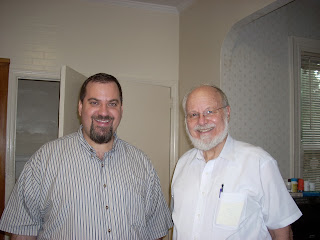Me, an ANE scholar?
Ever wish you could read the Iliad in the original ancient Greek that Homer wrote in?
What about Beowulf? Can you read the old English?
Hwæt! We Gardena in geardagum,
þeodcyninga, þrym gefrunon,
hu ða æþelingas ellen fremedon.
Oft Scyld Scefing sceaþena þreatum,
þeodcyninga, þrym gefrunon,
hu ða æþelingas ellen fremedon.
Oft Scyld Scefing sceaþena þreatum,
Do you wish you could?
There’s a well known Assyriologist in my neighborhood that I’ve gotten to know. He & I both attend a Shabbat afternoon study group, where he can be depended upon to mention obscure ancient texts that are relevant to the chumash we’re discussing. And he’s read these texts in their original languages.
Last week I was thinking how cool that would be. If only I could read Akkadian too. It’s a remarkable thing to be able to comprehend an ancient text as it was written, without the veil of translation standing in the way.
Then I realized that I do have that skill. Tanach, roughly contemporanous with Homer, is an ancient document and I can read it in the original biblical Hebrew. I can (and do) actually spend time with the text and look for patterns and anomolies. It’s called studying the Torah and anyone with a Jewish education has that skill.
I may not be able to read Beowulf, but it’s roughly contemporanous with another ancient text, the Talmud, which I do have the ability to read (though sometimes I need Rav Soncino or Rav Artscroll’s help.) I understand what’s going on in that Hebrew/Aramaic mix and can see the intricacies of the legal and Aggadic language used. That’s pretty darn cool.
My Yeshiva education left me with a lot of things I strongly dislike. Lack of critical thinking, blind faith, and numerous disturbing prejudices, which I’ve thankfully shaken in adulthood.
But the ability to read certain ancient texts in the original is a pretty amazing thing, which in other disciplines is usually part of PhD work. The fact that I, and most of you with day school or Yeshiva educations learned this AS CHILDREN is a pretty amazing thing, and makes me realize that along with my resentment, I also owe my chilhood Yeshivot a huge debt of gratitude and hakarat hatov.
Comments from old blog:
-
April 1, 2012 at 3:08 am | #4Philo, just wanted to say that reading/teaching Beowulf in the original language was my day job. If you can read German or even Yiddish, you can make a good start on Beowulf after about six weeks of studying Old English. I think learning to read biblical Hebrew as a small child gave me a real headstart in learning to read all sorts of old dead languages (I can read Old and Middle English, Old Icelandic, Old and Middle High German, Old Saxon, Old Frisian, and Middle Dutch). That is, learning a second language (of any sort) in childhood keeps the neural pathways in the brain open for learning additional languages for a lifetime. Ordinarily the capacity for a learning a new language becomes very limited by the time a child reaches adolescence. Growing up in a Yiddish-speaking family (two different dialects of Yiddish even) made learning Modern German and more recently Modern Dutch a snap. I can also read Latin and French, but I don’t like them. I think that growing up with Yiddish (and Pennsylvania Dutch) made all the Germanic languages (of which English is one) feel familiar, while the Italic/Romance languages seem alien, even though I had learned Latin and French by the time I reached junior high.
-
July 19, 2012 at 10:56 am | #5If my sister’s late f-i-l could teach himself Akkadian at age 70, you can too. Well, he was a language-head – he knew about 10 languages. Grew up in Prague, went to Israel in 1938 on a blockade-runner, ambassador to Cameroon in the early 1960s (he said he was most comfortable reading in French), did public relations for years.

Comments
Post a Comment